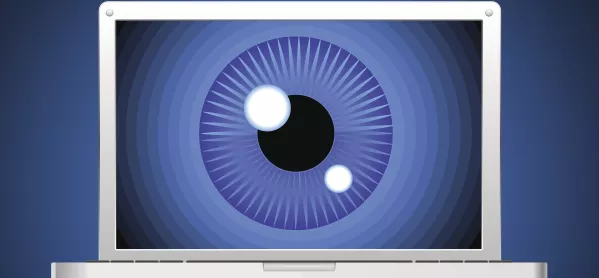- Home
- Save us from the avalanche of edu-speak
Save us from the avalanche of edu-speak

“I learned a new word today.” This phrase occurs repeatedly in JG Ballard’s semi-autobiographical novel Empire of the Sun, based on his childhood internment in China by the Japanese during World War II. The trope runs throughout the book (or, at least, through Steven Spielberg’s powerful movie adaptation) as the young eyes of his fictional hero, Jim, are opened to the world. Towards the end, as Hiroshima is struck and the war ends, he exclaims, “I learned a new word today: atom bomb”.
I learned a new word this week: “over-aiding”. This is how the Harris academy chain described the maladministration of some SATs papers in its North London primary Harris Academy Philip Lane. Those who had fought the takeover of the former Downhills Primary School enjoyed a moment of schadenfreude. Governor and campaigner Fiona Millar couldn’t resist pondering how academies, so often held up by government as models of excellence, achieve their great results: through unethical behaviour, she suggests.
As for me, I had to smile at the euphemism employed to describe the malpractice - in common parlance, cheating. “Over-aiding” was worthy of the Newspeak that features throughout George Orwell’s 1984.
New words, new euphemisms, new bluff and bluster. Following the over-aiding story, the Department for Education’s spokesman, the human element long since replaced by a spokes-robot, was quick to issue its usual bland, meaningless reassurance for parents, saying that although several papers were annulled “this will not, however, adversely affect any of the pupils as the school can provide teaching assessment data to show the pupils’ progress in the subject”.
So, if progress data is available anyway, why do we need the tests? Because SATs were never about individual pupils’ achievements, being concerned entirely with measuring school performance.
There’s more of this edu-Newspeak heading our way: of that I’m sure. Take, for example, our recently-appointed education secretary Damian Hinds riding to the rescue on technology in schools - or Ed Tech, to employ the trendy new word we’re all using now. Damian Hinds, always a tech fan, is grumpy that schools have failed to use it in new or imaginative ways (he should read Ann Mroz’s editorial in this week’s Tes about the time and money that have been wasted over the years in schools on tech that doesn’t work).
He announced five “key opportunities” where the tech sector, if only schools would work more closely with it, could “create a step change in education, improving teaching and slashing workload”. Three struck me in particular:
- EdTech will improve teaching practices to support access, inclusion and improved learning outcomes. Mr Hinds reckons that virtual reality can give kids amazing experiences of the rainforest or of programming robots. Why didn’t we teachers think of that?
- It will make assessment more effective and efficient. (Gosh, it will do tests!)
- EdTech will improve “administration processes to reduce the burden of ‘non-teaching tasks’.” He’s also spotted that technology can make it easier for schools to keep in touch with parents on their children’s progress, and vice versa. At last, we can pension off those old carrier pigeons we’re still using.
Above all, though, the education secretary is convinced Ed Tech will reduce teacher workload. That’s it, then. Job done. And a bonus for him: if technology makes admin so much easier, the DfE will be able to demand still more complex, unintelligible and ultimately meaningless data from teachers. Don’t scoff! It’s happened before.
Oh, brave new world! More change coming our way! And, clearly, new jargon to accompany them.
I invented a new word today: “eduballs”. I wonder if it will catch on?
Dr Bernard Trafford is a writer, educationalist and musician. He is a former headteacher of the Royal Grammar School, Newcastle, and past chair of HMC. He is currently interim headteacher of the Purcell School in Hertfordshire. He tweets @bernardtrafford
Keep reading for just £1 per month
You've reached your limit of free articles this month. Subscribe for £1 per month for three months and get:
- Unlimited access to all Tes magazine content
- Exclusive subscriber-only stories
- Award-winning email newsletters



